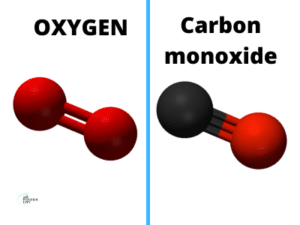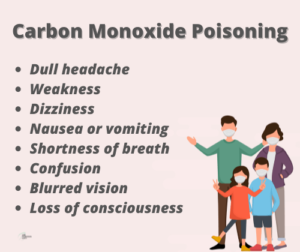Carbon monoxide always has been a serious issue. That is why fire and home departments recommend using a carbon monoxide detector in your home.
Even if you have one and it is not beeping, one might overthink and ask himself should I get an air purifier for myself and
Do air purifiers remove carbon monoxide?
Yes, some air purifiers trap carbon monoxide atoms ( not fully ), but they need an Activated carbon filter and a true HEPA filter. Air purifiers are built to trap and neutralize harmful particles from the air but like everything in the world air purifiers have limits, they can remove small particles as small as 0.01-.03 microns but gases are way thinner than that. Our take is air purifiers can trap some carbon monoxide particles but cannot be fully trusted to remove harmful gases especially when it comes to CO.
Again if the carbon detector starts beeping, GET OUT and call 911. An air purifier is good for many things but not for heavy carbon monoxide outbreaks.
Jump to :
What is carbon monoxide and carbon monoxide poisoning?
Carbon monoxide is an odorless, tasteless, colorless, and invisible gas produced by burning wood, coal, gasoline, and other fuels. Carbon monoxide poisoning happens when you have been exposed to this dangerous has. Extreme exposure can replace oxygen in your bloodstream with carbon monoxide and can cause some side effects.
What does carbon monoxide do to the body?
Take a deep breath. It feels good, right but do you know what is happening. Well, your lungs are taking oxygen from the air, and those oxygen molecules consisting of two oxygen atoms go into your bloodstream and deliver oxygen to your vital organs ( brain, etc.).
This is normal, but do you know what happens when you breathe carbon monoxide? You might only see a color difference between oxygen and carbon monoxide atoms, but this color difference makes a huge difference. When you breathe in carbon monoxide from a vehicle exhaust pipe, fuel-burning heating system, or other sources, those molecules consisting of a carbon atom and an oxygen atom take the place of the oxygen molecules hitching a dangerous ride on hemoglobin that can lead to a death similar to suffocation for them most part we’re all aware of this phenomenon it’s known as carbon monoxide poisoning the silent killer.
No one is here to read about the long and short-term exposer side effects, but I have made a small infographic to help understand this topic.
Can air purifiers produce carbon monoxide?
No, air purifiers do not produce any carbon monoxide. Its sole purpose is to clean dangerous particles from your surroundings, not produce them. if you want to know what are air purifiers and whats their important you can check out our other article too.
Do air purifiers work as carbon monoxide detectors?
No, air purifiers cannot detect CO and cannot be relied on to do so.
It would help if you got a good carbon monoxide detector. I will give a link to a good one below.
If you have a normal-sized apartment or house, buy one and place it in the main hall and again, listen to me if it beeps. Please do not take it lightly.
How long will it take carbon monoxide to dissipate?
It is correct that its half-life is 5 hours, but after 5 hours, half of it will dissipate, and after 10 hours, 75% will dissipate, and after 15 hours, 97.5% will dissipate, so you can say that it will roughly take 24 hours to dissipate carbon monoxide.
Will opening windows help?
Yes, many pieces of research have proved that carbon monoxide dissipates in the fresh air. But if your CO detector goes off, you need to exit your house and call in an emergency.
Do the HEPA filter help with carbon monoxide?
Gas is not solid; that is why HEPA filters cannot remove or catch them. HEPA filters are designed to capture small particles as small as 0.03 microns, but gasses are way thinner than that and cannot get trapped in HEPA filter
Choose an air purifier
Air purifiers have become extremely popular in recent years. However, with so many different variations on the market, it can be difficult to pick the right unit for your home. Click on this link and I’ll walk you through how to choose an air purifier. I’ll also look at some of the pros and cons of each type of air purifier. Click on the link to learn more!
Conclusion
After all the research, I am positive that an air purifier is a must-have in a house, but if you have any doubt about a carbon monoxide outbreak, an air purifier cannot do anything. GET A CARBON MONOXIDE detector, and if it goes, don’t run for your air purifier. Call your local fire department and exit your house with your family. You can check out some nice air purifiers here for solely envirment purposes
BREATHE SAFE STAY HEALTHY!


